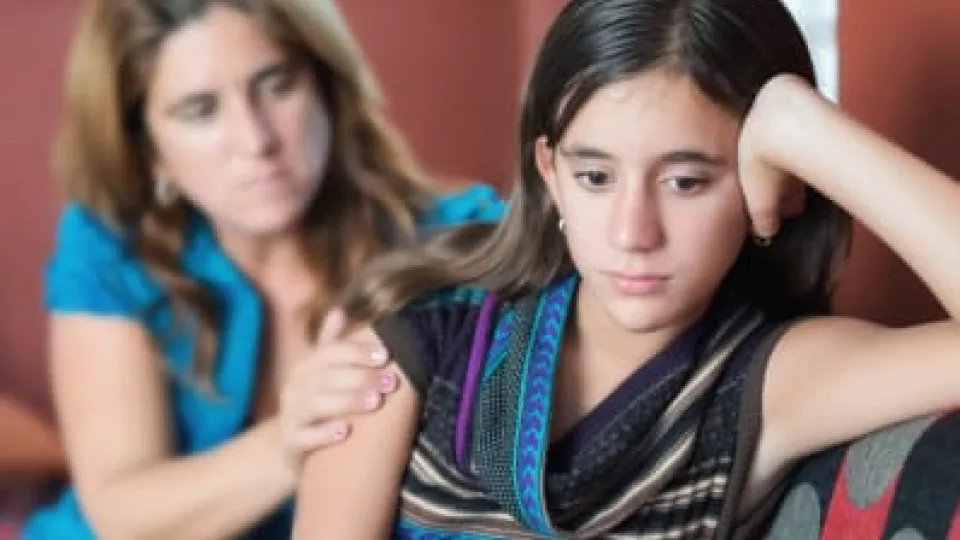
Teens and Self-Esteem
We probably all remember our teen years as peppered with a lot of excitement, as well as a lot of angst; times when we felt we had everything under control, and then the next minute our world was collapsing around us, our feelings of self-esteem in our boots.
Recent studies have suggested that trying to evaluate self-esteem may be counterproductive for teens, because they are highly self-critical. Inevitable comparisons with other teens, particularly with girls, set up feelings of inadequacy.
I asked Sophie de Figueiredo, PsyD, clinical psychologist in the Division of Adolescent and Young Adult Medicine at Children’s Hospital Los Angeles, about her thoughts and recommendations. Here’s what she had to say:
- Modeling self-compassion
Parents and providers can play a huge role in protecting teens from poor self-esteem by teaching and modeling self-compassion, which newer research suggests may lead to greater and longer-lasting benefits to emotional well-being than focusing on self-esteem.
- Teaching an “I can do it” attitude
Fostering an “I can do it” attitude among teens is an important part of building confidence and persistence. However, it is equally as important to help teens understand that they are more likely to succeed in their goals by being kind and compassionate to themselves regardless of outcome.
- Helping to manage negative thoughts
We can help build teens’ self-compassion by encouraging them to look at mistakes with kindness instead of judgment and to explore flaws with curiosity instead of shame. We should work to help teens feel comfortable talking about negative experiences so that they can see that they are not the only ones who struggle. Doing so will help teens reduce attempts to manage painful thoughts, feelings or events by avoiding them, and instead, will help them approach negative experiences as opportunities for learning and growth.
Making time for our children is crucial to their well-being. In our family we tried hard to sit down together for a meal at least a few times a week. This was an opportunity to recognize our teen as an emerging adult by engaging her in discussions about world affairs, the events of the day, and dealing with difficult relationships or hard decisions.
Teens should be engaged in the real world by socializing with family, and having friends at school and outside of school; it is important as well for parents to know who those friends are, and to keep in touch with the influences affecting their teens.
Teenagers typically have trouble believing that parents know anything, but keeping the lines of communication open is vital. Here are some great examples:
- I found texting a blessing. Short and sweet messages are easy to do.
- The car can be a safe zone; teens may feel they can speak freely and are more open to listening.
Praise and recognition from parents is meaningful, so be generous with it for things like being kind, making good decisions, giving back to others, being a thoughtful team player, or putting in effort academically or in a sport. Focusing more on personal qualities and effort versus achievements or outcomes is key to helping build a positive self-image.
De Figueiredo concluded by sharing that “perhaps the most important point for parents to keep in mind is that teens learn by example, and modeling self-compassion, as well as compassion toward others, is vital to helping teens develop these abilities in themselves.” Though we may not feel that what we say and do is of importance, research has shown that teens’ self-esteem and self-compassion is very much influenced by what parents model. Including self-compassion in our parenting will promote growth and self-reflection in our teens and ourselves.


